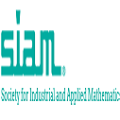Current natural language processing (NLP) models such as BERT and RoBERTa have achieved high overall performance, but they often make systematic errors due to bias or certain difficult features to learn. Thus research on slice detection models (SDM) which automatically identifies underperforming groups of datapoints has gradually caught more attention, which aims at both understanding model behaviors and providing insights for future model training and designing. However, there is little systematic research on SDM and quantitative evaluation of its assessment for NLP models. Our paper fills this gap by proposing "Discover, Explanation, Improvement" framework that discovers coherent and underperforming groups of datapoints and unites datapoints of each slice under human-understandable concepts; it also provides comprehensive evaluation tasks and the corresponding quantitative metrics, which enable convenient comparison for future works. Results show that our framework can accurately select error-prone datapoints with informative semantic features that summarize error patterns, based on which it directly boosts model performance by an average of 2.85 points based on trained models without tuning any parameters across multiple datasets.
翻译:目前自然语言处理(NLP)模式,如BERT和RBERTA等自然语言处理(NLP)模式取得了很高的总体性能,但由于偏差或某些难以学习的特征,这些模型往往造成系统性错误。因此,对自动识别业绩不佳的数据点群的切片检测模型(SDM)的研究逐渐引起更多的关注,其目的在于了解模型行为,并为今后的模型培训和设计提供见解。然而,关于SDM和对NLP模型评估的定量评估的系统性研究很少。我们的文件填补了这一空白,提出了“发现、解释、解释、改进”框架,发现数据点群的一致和表现不佳,并在人类无法理解的概念下将每个切片点的数据点联合起来;它还提供了全面的评估任务和相应的量化指标,便于对未来工作进行比较。结果显示,我们的框架可以准确选择出错易出错的数据点,并附有信息性能概括出错模式,在此基础上,根据经过培训的模型,以平均2.85点直接推动模型的性能,而无需对跨多个数据集的任何参数进行调整。





